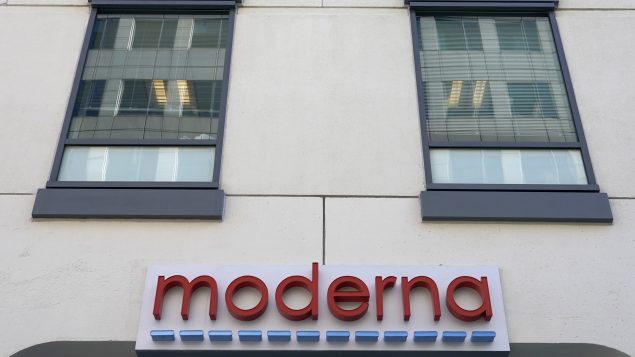American biotech firm Moderna announced today it’s COVID-19 vaccine no longer must remain frozen to at least -20 Celsius before use.
The announcement will likely make the people running distribution networks around the world–including Canada’s–sleep a whole lot better.
Distribution could begin as early as next week, though no official date has been set and the rise in tempertures should make it infinitely easier to get the vaccine to remote regions in the northern territories, to isolated First Nations communities and–in the cities and suburbs–hard-hit long-term care homes
Canada, which already has enough vaccines secured to protect a population four times its size–the most of any country in the world–ordered an additional 20 million doses from Moderna earlier this month, bringing its confirmed order commitment to 40 million doses from the Massachusetts-based pharmaceutical giant.

Boxes containing the Pfizer-BioNTech COVID-19 vaccine are prepared to be shipped from the Pfizer manufacturing plant in Portage, Mich., last Sunday. The Pfizer-BioNTech product must be stored at -70 Celsius, which can complicate distribution efforts. Not so with Moderna, which announced today it can now safely transport liquid doses refrigerated at between 2 C and 8 C. (The Associated Press/Morry Gash)
Canada approved the Pfizer-BioNTech vaccine last week and what officials are calling the largest mass vaccination campaign in Canada’s history began on Monday when long-term care residents in Quebec City and Montreal and health-care workers in Toronto became the first persons in the country to receive their vaccinations.
The Pfizer-BioNTech vaccine must be stored at temperatures below -70C while–until today–it was believed the Moderna’s vaccine needed to remain frozen to at least -20 C until shortly before use.
The company now says it can now safely transport liquid doses refrigerated at between 2 C and 8 C.
The original difference in storage temperatures prompted Canada’s three northern territories–the Northwest Territories, Nunavut and Yukon–to wait for the Moderna vaccine.
Pfizer and Moderna together are expected to deliver 60 million doses of vaccine to Canada by next fall.
The pandemic has killed more than 14,000 people in Canada and infected over 493,000 others.
With files from CBC News, The Canadian Press, RCI







For reasons beyond our control, and for an undetermined period of time, our comment section is now closed. However, our social networks remain open to your contributions.